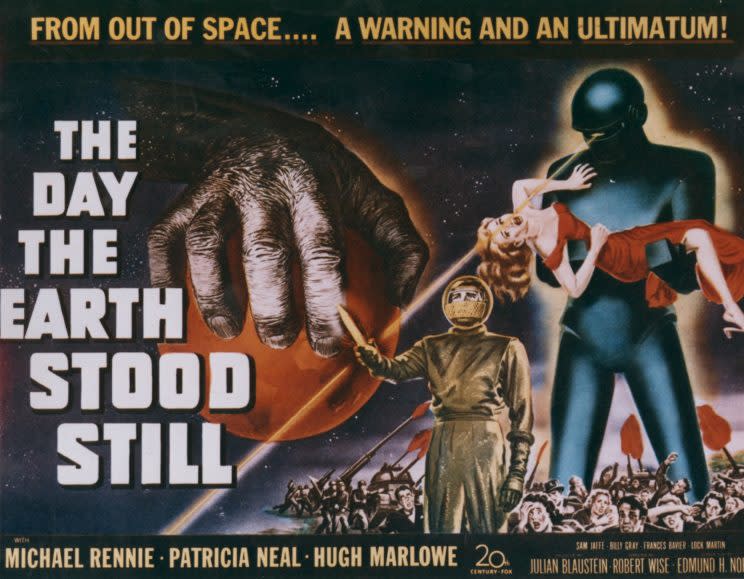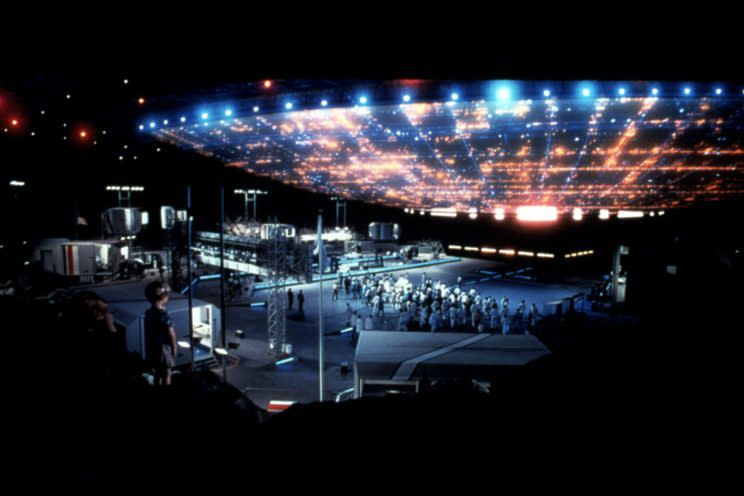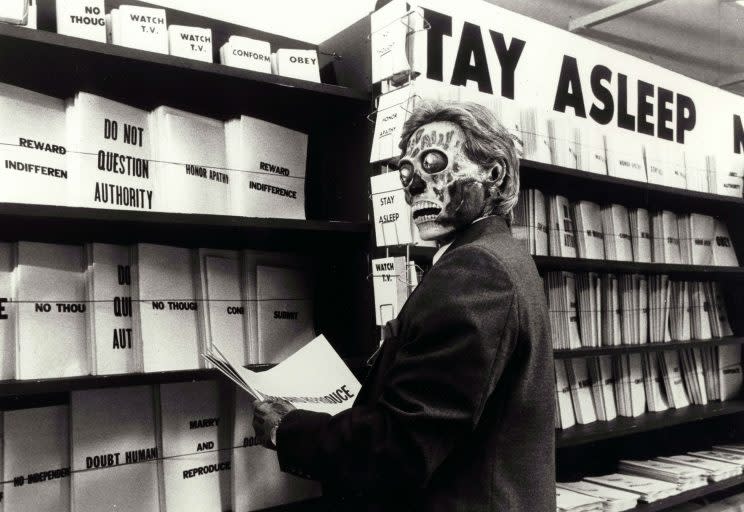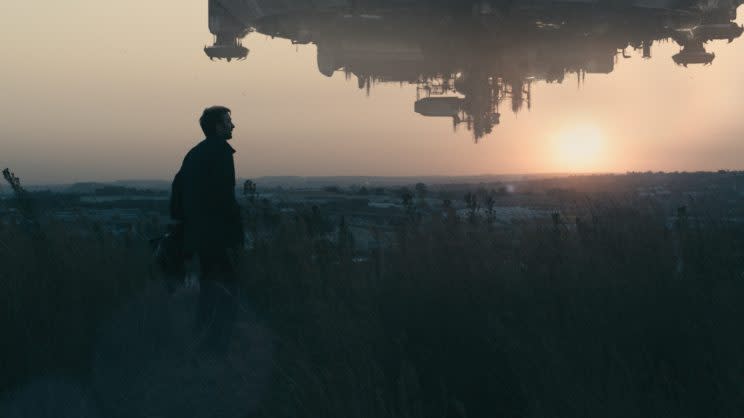A brief history of alien invasion movies

‘Arrival’, Denis Villeneuve’s celebrated new sci-fi movie, is being hailed as one of the best films of the year, with Amy Adams’ lead performance coming in for particular praise. It’s certainly got some belting pedigree, and not just behind and in front of the camera. It follows decades of alien arrival/invasion movies going back through the annals of film history.
In literature, H.G. Wells first popularised the invasion of alien beings as a concept in 1897, with his seminal ‘War of the Worlds’, an allegory of the brutality and ravages of colonialism. It also betrayed a fear of annihilation, which was thought could arrive inexplicably at the turn of the century. You could even trace it further back to Swift, and his satire ‘Gulliver’s Travels’, but for its influence on cinema, it’s Wells who reigns.
Famously, the 1938 radio broadcast of its adaptation, read by Orson Welles, caused widespread panic thanks to its reverent delivery, many believing it to be an actual news broadcast. It wasn’t until 1953 that an adaptation arrived on screen, directed by Byron Haskin and starring Gene Barry. But it was preceded by movies like ‘The Man From Planet X’ in 1951, and the more renowned ‘The Day The Earth Stood Still’ the same year (remade somewhat ignominiously with Keanu Reeves in 2008).

Robert Wise’s classic saw alien being Klaatu arrive on Earth with a powerful robot henchman, Gort, announcing Earth’s potential elimination over concerns from other extra-terrestrial planets that man has created dangerous atomic weapons and as such has become a threat.
Deep-seated fears have always been at the root of the alien invasion movie. By this stage Wells’ allegory of colonialism had been replaced by fear of the Cold War, of creeping communism, the paranoia of Senator Joe McCarthy, nuclear destruction and the ‘reds under the bed’. Then there’s ‘It Came From Outer Space’ in 1953, where humans in a small Arizona town are replaced by blank clones, though it had a considerably more benign plot. The nefarious occupation was merely a rouse to cover their tracks while they repair their ship. They were simply misunderstood.
‘Invaders From Mars’ in 1953 took on the same themes, of townsfolk in ‘interfered with’ rather than replaced. It was remade by Tobe Hooper in 1986, and though remembered by movie fans now of a certain age, was a flop at the box office. ‘Invasion of the Body Snatchers’ in 1956 ploughed a similar furrow of paranoia, when Kevin McCarthy’s small town doctor finds his patients are slowly being replaced by the ‘Pod People’, identical, emotionless duplicates, an allegory for both bland conformity and the loss of individual control, as depicted in the communist doctrine. It was rebooted again in 1978 too.

From such solid foundations, it’s now a staple narrative in Hollywood, revisited frequently. Spielberg’s majestic ‘Close Encounters of the Third Kind’ from 1977, though ostensibly about alien visitors, focused as much on a man mentally unravelling in front of his family, as well as whether or not we are floating alone in the cosmos.
John Carpenter took the invasion theme and applied to it the rampant, unchecked consumerism of the 80s in ‘They Live’, in which a wandering drifter played by Roddy Piper discovers (thanks to a pair of sunglasses which allow him to see the world as it really is) that those in positions of power and authority are actually, hideous, skull-faced humanoid aliens.

More recent takes on the genre have been arguably less cerebral – favouring explosions and derring-do over social comment. ‘Independence Day’ will hardly go down as a modern classic, despite the box office haul of Roland Emmerich’s 1996 blockbuster, ditto for truly forgettable movies like ‘Battle: Los Angeles’ and ‘Skyline’. Spielberg’s take on Well’s ‘War of the Worlds’ in 2005 began spectacularly well, building almost unbearable tension with a series of dazzling set-pieces, before ending on a whimper.

A notably more impressive take on the genre came from ‘District 9’, Neill Blomkamp’s searing debut, a withering criticism of xenophobia, social segregation and apartheid set in Johannesburg, with Sharlto Copley’s hapless government wonk becoming an unlikely freedom fighter for a race of oppressed alien arrivals.
Like that film, hopefully, ‘Arrival’ will become one of the more timeless examples of the genre.
It’s out today across the UK.
Read more
– Donald Trump’s most awkward movie cameos
– Critics heap praise on Disney ‘delight’ Moana
– Beauty and the Beast remake reveals new songs

 Yahoo Movies
Yahoo Movies 

